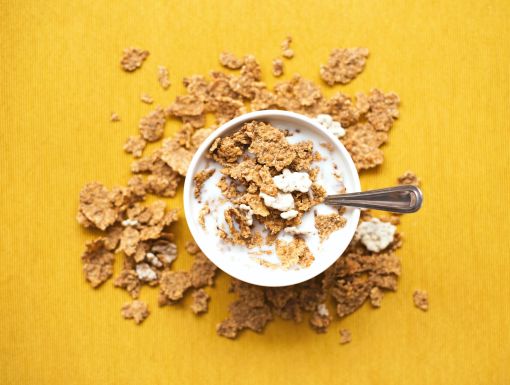
How Much Protein Do I Need?
Protein is essential for helping us reach physical goals, like getting leaner and stronger. It’s also involved in pretty much every aspect of our energy and metabolism and is vital for maintaining our alertness and focus. Here are rules of thumb on how much protein we need and – if we’re lacking – three seamless ways to add more into our diets.
Why does protein matter?
Protein is vital for our bones, muscles and skin, and protein also supports healthy hormones and blood pressure. It’s a tremendous benefit in post-workout muscle recovery, serving to repair muscle fibers that are stressed with exercise.
Protein is digested more slowly than carbs, making us feel fuller longer. Too little protein in the diet can leave us feeling tired and hungry, weaken our immune system and lead to the gradual loss of muscle mass that naturally occurs as we age.
The recommended daily allowance for protein is too low for most active people, so how much protein do we really need? Research shows that most of us should aim for 0.45 to 0.68 grams of protein per pound. To streamline, round up to 0.5 to 0.75 grams (or even simply 1 gram) of protein per pound of body weight.
For a 150-pound person, this means 75-150 grams of protein daily.
If we incorporate protein into meals and snacks throughout the day, it is easy to reach our daily protein goals with everyday food and drink. A 6-ounce serving of fish, meat or poultry has about 40 grams of protein.
Not a meat-eater? It’s easy to meet daily protein goals with meatless options. Beans, lentils, nuts and seeds, and meat alternatives, such as tofu and tempeh, are great options.
3 easy protein add-ins:
Collagen - Essentially flavorless, it dissolves easily and works well in hot or iced coffee and smoothies, even sauces, soups and baked goods. Two scoops typically add 20 grams of protein.
Greek Yogurt – My top Greek yogurt picks are Fage 2%, Chobani full-fat, Trader Joe’s reduced- or full-fat or Kite Hill’s no-sugar-added plant-based protein yogurt. Greek yogurt is versatile for smoothies, creamy hot dishes (like Bolognese or creamed spinach) and creamy dips (in place of sour cream and/or mayo).
Smoothies – DIY at home by adding plant- or whey-based protein, collagen or Greek yogurt. Or, if you prefer to pick up a smoothie, any of the nutrient- and protein-packed 30+ Eat Fit-approved smoothies at Smoothie King are great options. These smoothies have as much as 20-plus grams of protein and some as much as 45 or 65 grams of protein. Find complete list and nutrition facts on the Eat Fit smartphone app, available for Apple and Android devices.
Click here to learn more about nutrition at Ochsner Health.
Editor’s note: Registered Dietitian Molly Kimball offers brand-name products as a consumer guide; she does not solicit product samples nor is she paid to recommend items. A version of this article originally appeared on WGNO’s “FUELED Wellness + Nutrition.



